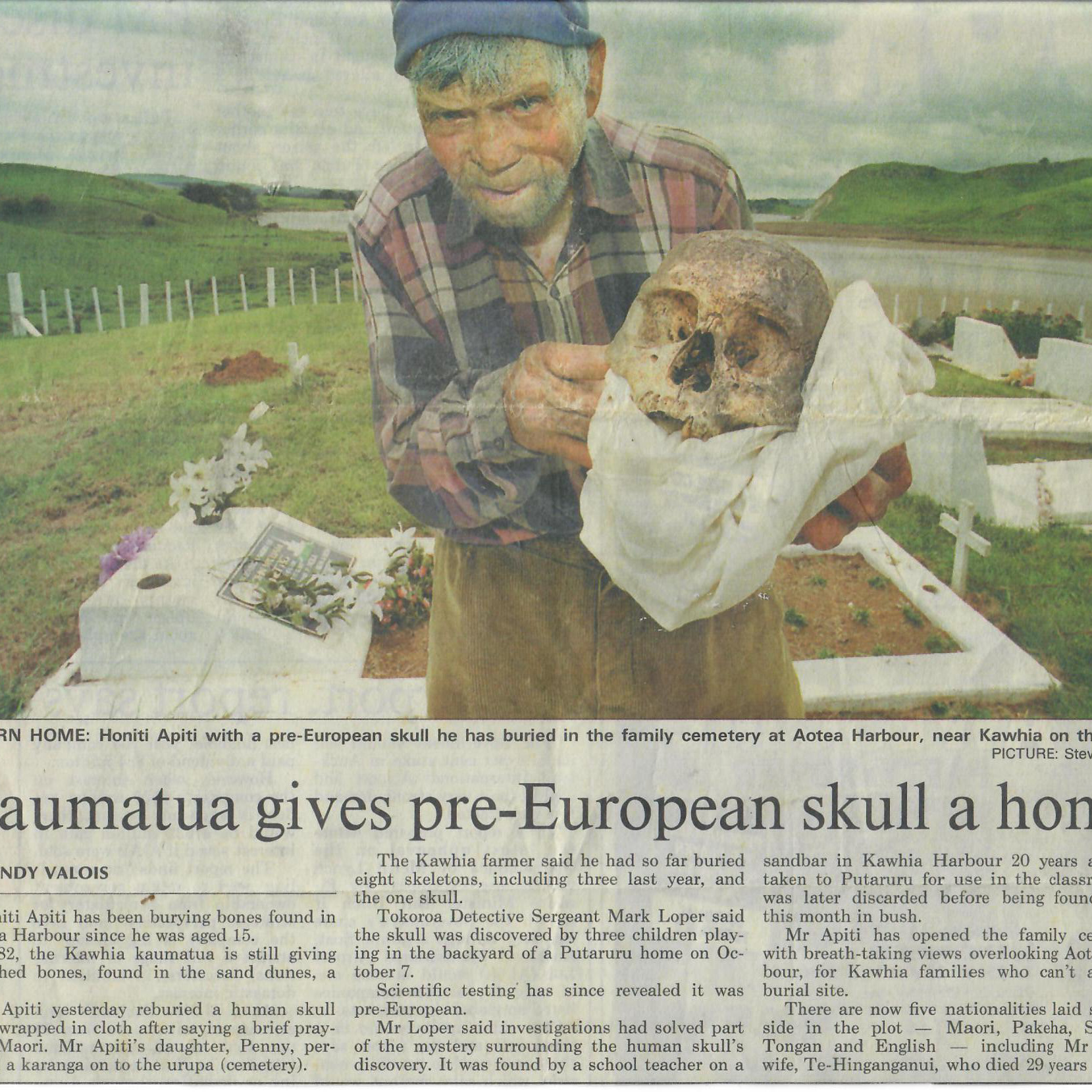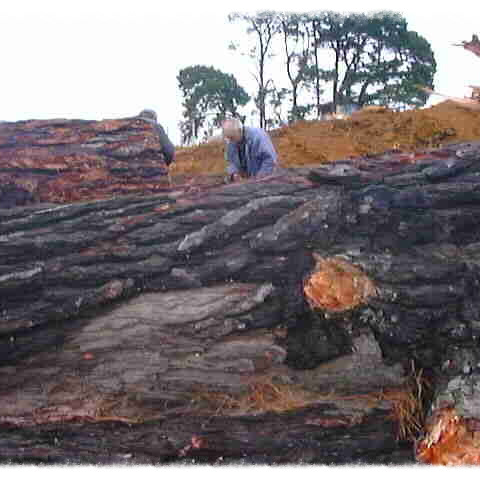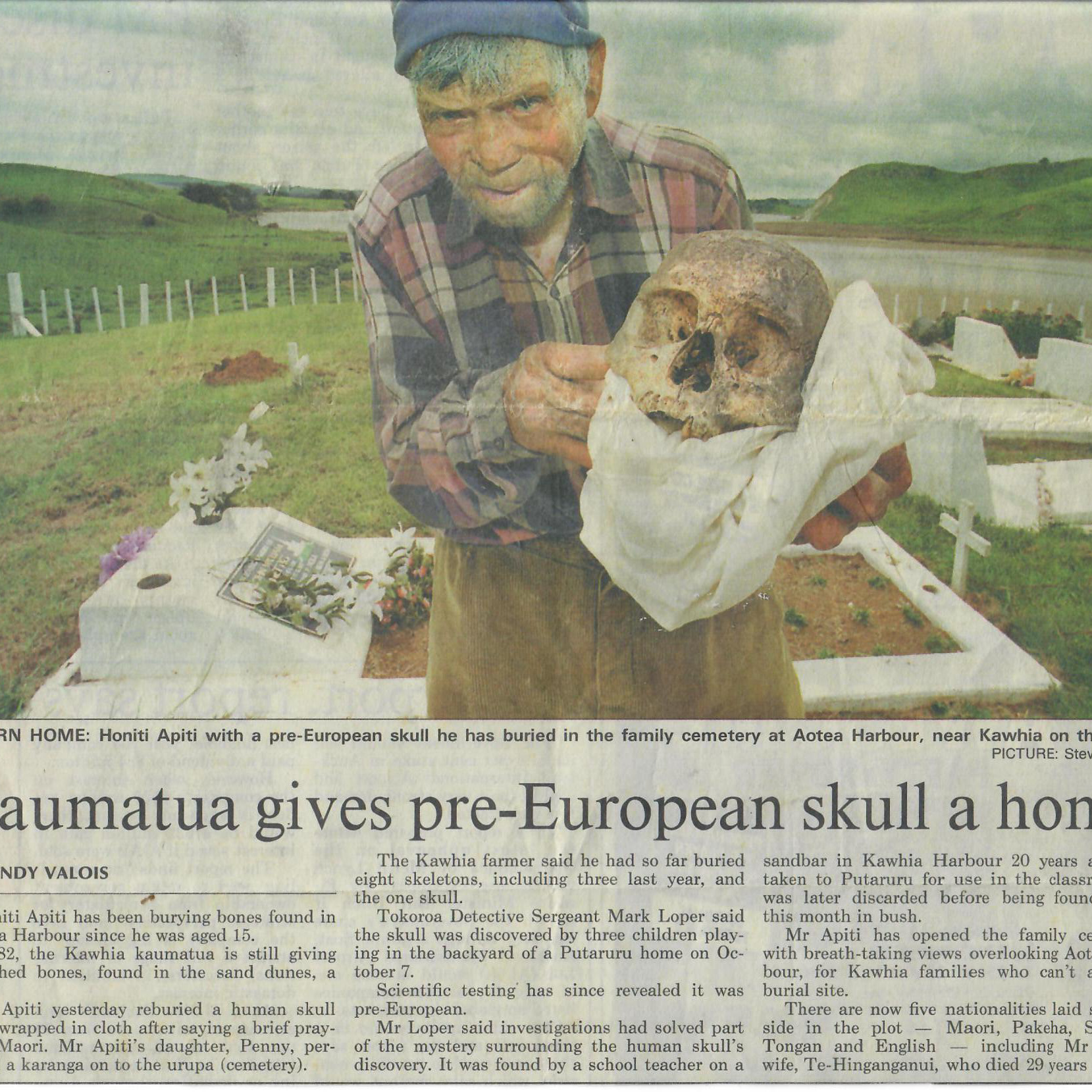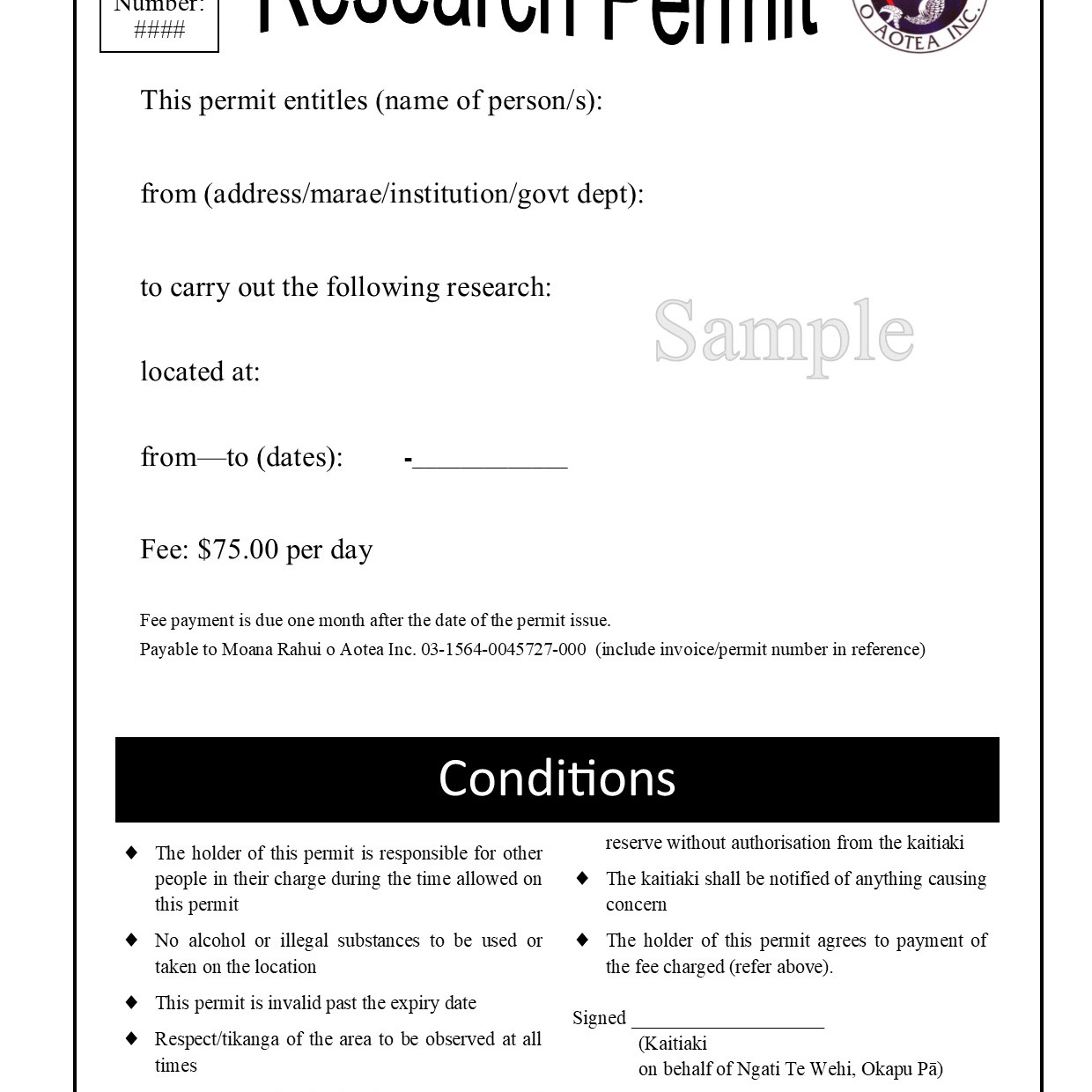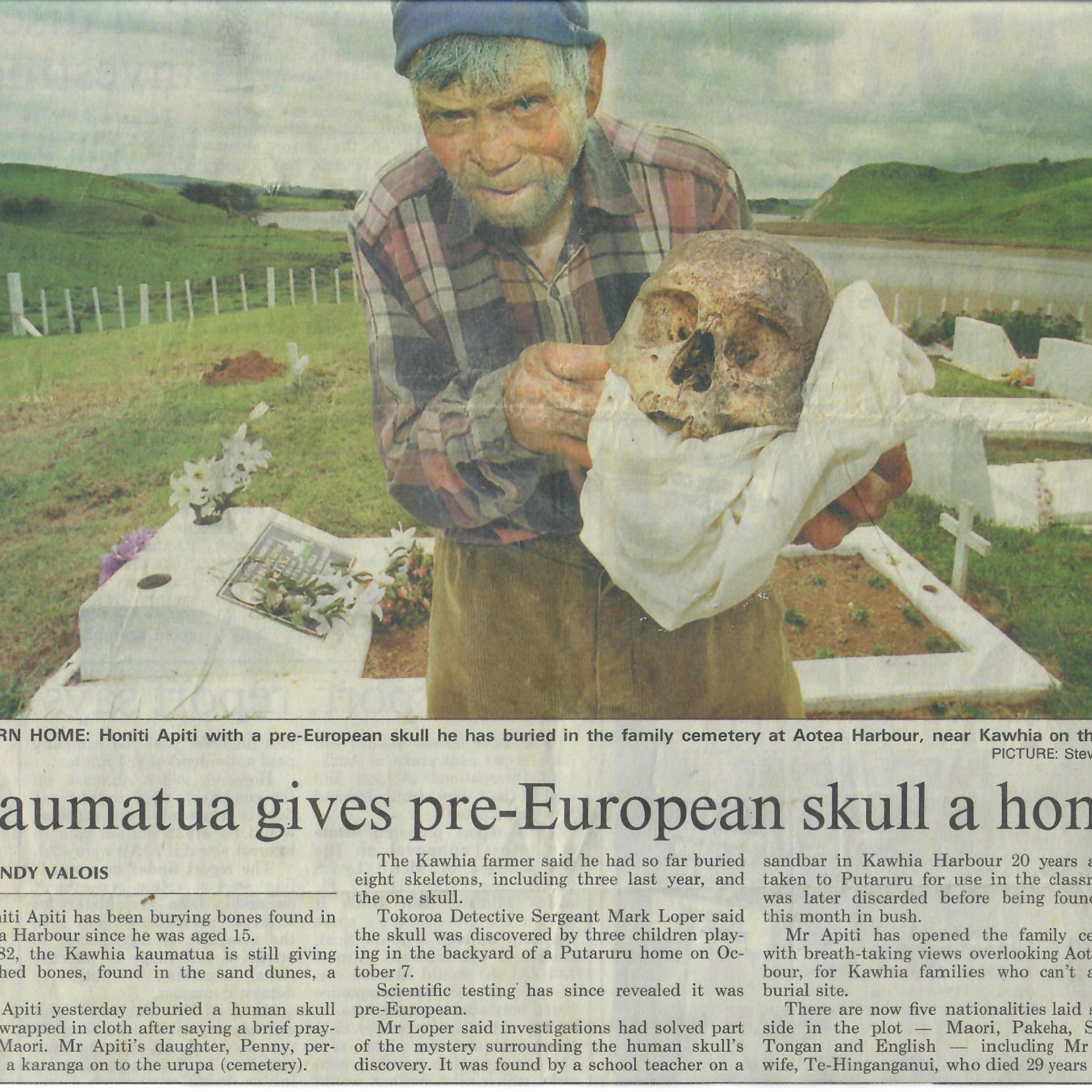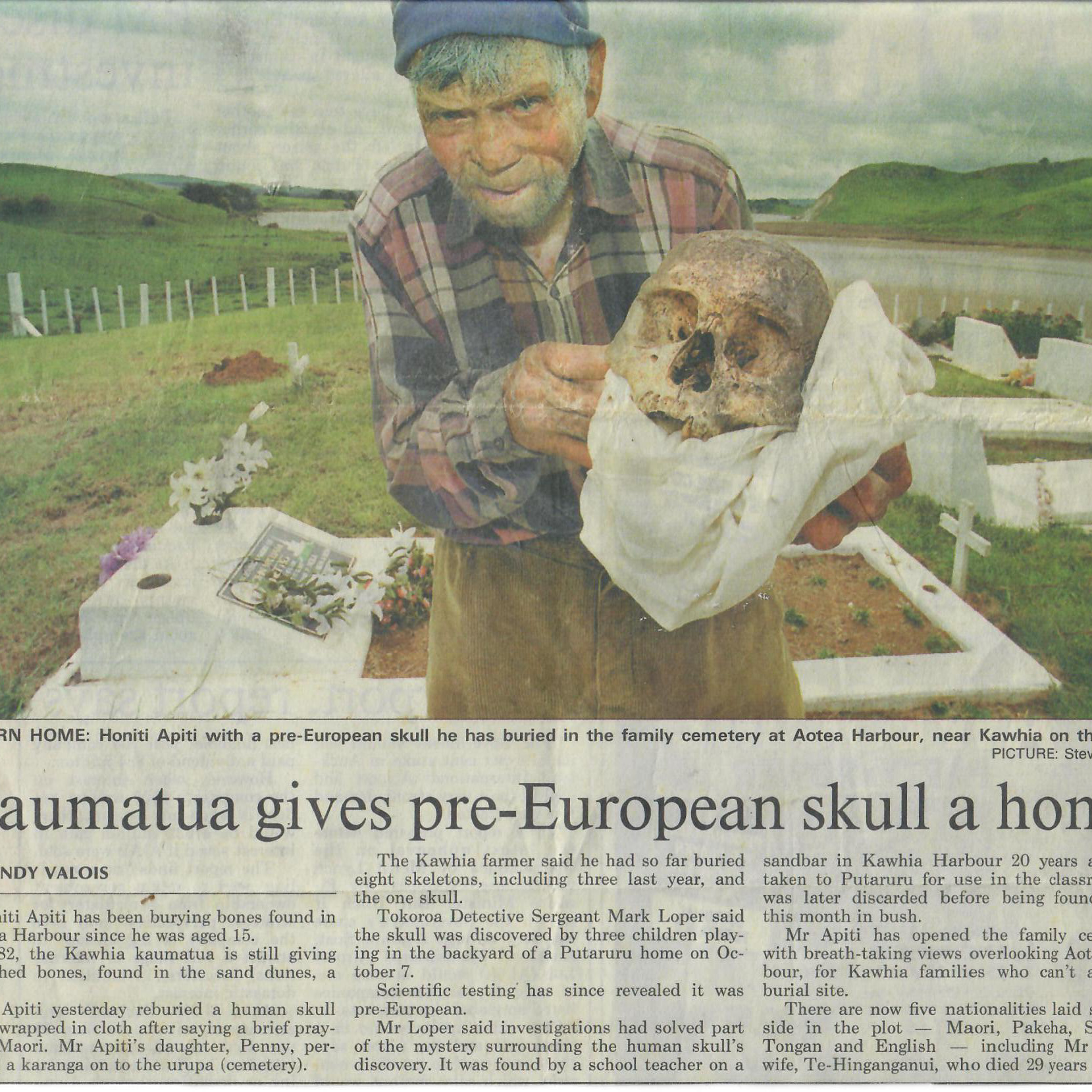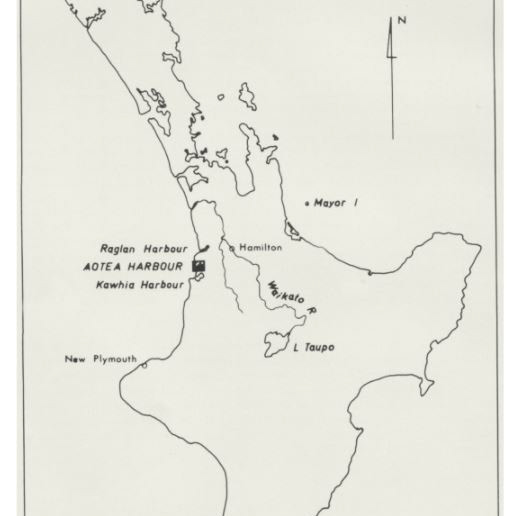AOTEA HARBOUR - AOTEAROA ~ NEW ZEALAND
Acknowledgement and appreciation to Peter Dorsey Driggs for the research and publication of this excerpt.
As the colonization of New Zealand continued, the decline of the Māori community brought with it many implications. The loss of culture was closely tied to the loss of the Māori land ethic and environmental conservation practices. As settlers flocked to New Zealand in the years following its "discovery", the Māori lost their lands and their land ethic.
To the Māori, the land was a holy entity. Land was their turangawaewae (footstool) and the mana (strength); it gave their lives purpose (Sharp 1990, 55). The Māori drew from the land their physical sustenance and "their spiritual and cosmic wellbeing" (Hanson and Hanson 1983, 65). Individuals did not own land; the land, water, and forests were shared communally (Binny et al. 1989, 23).
The Māori had a profound understanding of the resources surrounding them (Orbell 1985, 15). Their conservation ethic and actions illustrate a great respect for the land. Fishing and hunting were executed according to strict regulations. The practice of rāhui, restricting the use of land, forests, and oceans, was an important conservation tool (Barlow 1991, 105). Rāhui called for agricultural plots to be left uncultivated for a period of time, so that vitality of the land could be replenished. The Māori emphasized long-term sustainability of environmental resources.
The Māori protected orchards and gardens with another restriction called tapu. They also created forest reserves for birds (Rout 1926, 81). The reserves were strictly enforced, and the community was kept out of the entire forest during mating season for the birds. These regulations were implemented to ensure maturity of the birds.
On the contrary, the Pākehā brought a different kind of land ethic from England - one based on individual ownership of the land. To the Pākehā, the land was a commodity, and economic asset. They sought to exploit the land, not to preserve it. While the British felt their way of life was superior to the Māori, this crude view was based on short-term perspectives rather than long-term sustainability.
The difference between the Māori land ethic and the land ethic of the Pakeha was clearly expressed during a meeting between the Māori leaders and the British expansionists at Coromandel Harbour. Large amounts of gold were discovered in the region, and the colonists wanted to acquire the lands for the purpose of mining. The Māori were interested in receiving compensation, but their major concern was that they not be alienated from their land in the process (Hanson and Hanson 1983, 65). Mana denoted extraordinary power, ability, or strength of someone or something. It went beyond the physical nature of the land to acknowledge the spiritual. To the Māori, the land established a sense of continuity with the cultural past, and also with their forebears. The cultural significance of the land, rather then merely its products, was important to the Māori (McLeod 1968, 288).
As the Māori realized their plight, they organized land leagues to resist further sale of their sacred lands. A Māori chief, Sir Apirana Ngata, described the movement as "one of the organizations evolved by the Māori people for resisting the destruction of their culture and the loss of its foundation, land" (qtd. in Stokes 1978, 6, 8). Unlike the Pakeha, the Māori understood that their culture was directly tied to their land. They not only wanted to preserve their sacred land, hut "avoid national submergence and extinction" (Belshaw 1947, 59). The Māori leaders knew that they were at a critical point in maintaining their culture, and they viewed their lands as an important ingredient to keep their culture thriving.
Apart from attempting to take the sacred lands away from the Māori, the Pākehā "began to monopolize the fishing grounds and the resources of the forests and rivers" (Barlow 1991, 135). This assault on the resources of New Zealand by the Pākehā further made manifest the difference between the two land ethics. While the Pākehā were concerned with short-term profit, the Māori were interested in long-term conservation.
With their lands lost or sold, the Māori were forced to live a "European" life. Their children were taught English, rather than the Māori language, in their schools. Each generation became more European, leaving them less proud of the cultural roots. Whereas the Māori culture demanded respect for the land, these "civilized" Māori children were taught to regard the land in economic rather than spiritual terms.
Summary
The Māori, with a land ethic, based on principles of respect and sustainability, were far more interested in maintaining the land and its fertility than were their English counterparts. These high standards were lost with the arrival of the English and their consumption-based economy. The English, while attempting to assume the "white man's burden,'' eventually destroyed the foundations of Māori culture in an effort to assimilate the Mann' into their society. Biological and social theories helped to provide "justifications," resulting in the elimination of certain elements of the Māori culture, specifically their land ethic.
The plight of the Māori with respect to their land is far from unique. European contact with indigenous peoples has been termed "the tragic. mess which invariably results from the impact of white upon aboriginal culture" (Belshaw 1847, 54). The assimilation of the Māori serves as an important example of the "tragic mess", impacts of this enculturation are well documented on a more promising note, there has recently been a strong movement among the Māori to rediscover their culture with a return to the previously held view of the sacred nature of their land. There is a renewed awareness of the duty to conserve the land for future generations. Perhaps now the "white man's burden" should assume a new role, teaching proper respect for sustainable-land practices and integrating such awareness into our own ethics."
References
To the Māori, the land was a holy entity. Land was their turangawaewae (footstool) and the mana (strength); it gave their lives purpose (Sharp 1990, 55). The Māori drew from the land their physical sustenance and "their spiritual and cosmic wellbeing" (Hanson and Hanson 1983, 65). Individuals did not own land; the land, water, and forests were shared communally (Binny et al. 1989, 23).
The Māori had a profound understanding of the resources surrounding them (Orbell 1985, 15). Their conservation ethic and actions illustrate a great respect for the land. Fishing and hunting were executed according to strict regulations. The practice of rāhui, restricting the use of land, forests, and oceans, was an important conservation tool (Barlow 1991, 105). Rāhui called for agricultural plots to be left uncultivated for a period of time, so that vitality of the land could be replenished. The Māori emphasized long-term sustainability of environmental resources.
The Māori protected orchards and gardens with another restriction called tapu. They also created forest reserves for birds (Rout 1926, 81). The reserves were strictly enforced, and the community was kept out of the entire forest during mating season for the birds. These regulations were implemented to ensure maturity of the birds.
On the contrary, the Pākehā brought a different kind of land ethic from England - one based on individual ownership of the land. To the Pākehā, the land was a commodity, and economic asset. They sought to exploit the land, not to preserve it. While the British felt their way of life was superior to the Māori, this crude view was based on short-term perspectives rather than long-term sustainability.
The difference between the Māori land ethic and the land ethic of the Pakeha was clearly expressed during a meeting between the Māori leaders and the British expansionists at Coromandel Harbour. Large amounts of gold were discovered in the region, and the colonists wanted to acquire the lands for the purpose of mining. The Māori were interested in receiving compensation, but their major concern was that they not be alienated from their land in the process (Hanson and Hanson 1983, 65). Mana denoted extraordinary power, ability, or strength of someone or something. It went beyond the physical nature of the land to acknowledge the spiritual. To the Māori, the land established a sense of continuity with the cultural past, and also with their forebears. The cultural significance of the land, rather then merely its products, was important to the Māori (McLeod 1968, 288).
As the Māori realized their plight, they organized land leagues to resist further sale of their sacred lands. A Māori chief, Sir Apirana Ngata, described the movement as "one of the organizations evolved by the Māori people for resisting the destruction of their culture and the loss of its foundation, land" (qtd. in Stokes 1978, 6, 8). Unlike the Pakeha, the Māori understood that their culture was directly tied to their land. They not only wanted to preserve their sacred land, hut "avoid national submergence and extinction" (Belshaw 1947, 59). The Māori leaders knew that they were at a critical point in maintaining their culture, and they viewed their lands as an important ingredient to keep their culture thriving.
Apart from attempting to take the sacred lands away from the Māori, the Pākehā "began to monopolize the fishing grounds and the resources of the forests and rivers" (Barlow 1991, 135). This assault on the resources of New Zealand by the Pākehā further made manifest the difference between the two land ethics. While the Pākehā were concerned with short-term profit, the Māori were interested in long-term conservation.
With their lands lost or sold, the Māori were forced to live a "European" life. Their children were taught English, rather than the Māori language, in their schools. Each generation became more European, leaving them less proud of the cultural roots. Whereas the Māori culture demanded respect for the land, these "civilized" Māori children were taught to regard the land in economic rather than spiritual terms.
Summary
The Māori, with a land ethic, based on principles of respect and sustainability, were far more interested in maintaining the land and its fertility than were their English counterparts. These high standards were lost with the arrival of the English and their consumption-based economy. The English, while attempting to assume the "white man's burden,'' eventually destroyed the foundations of Māori culture in an effort to assimilate the Mann' into their society. Biological and social theories helped to provide "justifications," resulting in the elimination of certain elements of the Māori culture, specifically their land ethic.
The plight of the Māori with respect to their land is far from unique. European contact with indigenous peoples has been termed "the tragic. mess which invariably results from the impact of white upon aboriginal culture" (Belshaw 1847, 54). The assimilation of the Māori serves as an important example of the "tragic mess", impacts of this enculturation are well documented on a more promising note, there has recently been a strong movement among the Māori to rediscover their culture with a return to the previously held view of the sacred nature of their land. There is a renewed awareness of the duty to conserve the land for future generations. Perhaps now the "white man's burden" should assume a new role, teaching proper respect for sustainable-land practices and integrating such awareness into our own ethics."
References
Driggs, P. D. 1994. Social Darwinism Imperialism, and the Loss of Māori Land Ethic. In Journal of Environmental Studies, ed. S. Tullis. Provo, Utah: Brigham Young University,Barlow, Cleve. 1991. Tikanga whakaaro: Key concepts in Māori Culture. Auckland New Zealand: Oxford University Press.
Belshaw, Horace. 1947. New Zealand. Berkley: University of California Press.
Hanson, F. Allan, and L. Hanson. 1983. Counterpoint in Māori culture. London: Routledge & Kegan Paul.
McLeod, A. L. 1968. The pattern of New Zealand culture. New York: Cornell University Press.
Orbell, Margaret. 1985. The natural world of the Māori. Dobbs Ferry, NY: Sheridan House.
Rout, Ettie A. 1926. Māori symbolism. New York: Harcourt, Brace & Company.
Sharp, Andrew. 1990. Justice and the Māori. Auckland, New Zealand: Oxford University Press.
Stokes, Evelyn. 1978. Te rautapu o tauranga. Hamilton, New Zealand: University of Waikato Press.
No part of this article may be reproduced without permission from its author.
Send us your pledge of support or contact us below:
Thank you!
